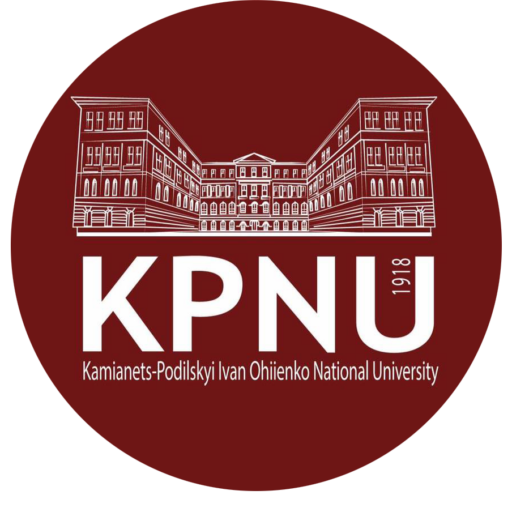Denys Parovyi
Kamianets-Podilskyi Ivan Ohiienko National University
Scientific Supervisor: PhD, Kryshtaliuk A. A.
INAUGURAL ADDRESS OF AMERICAN PRESIDENTS
This paper deals with the genre of the inaugural address of American presidents viewed as powerful executives. It is the mixed genre of the political and public discourses. The cooperative function is considered the main one in the genre of the inaugural address. It has been determined that Harry Truman’s inaugural address has got nation and future orientation that is represented in the discourse.
Keywords: genre, inaugural address, American presidents, cooperative function, nation orientation, future orientation.
Genre is a classifying parameter of discourse. Inaugural speech is a genre that belongs mainly to public and political discourse. Oratory and rhetoric are central features of this genre.
Inaugural speech is a genre of Presidential rhetoric and is the first opportunity for a President to use the official voice. It is a dynamic genre. Inaugural speeches mark their first impressions, as official Presidents. Next, inaugural speeches are part of a ceremony; Presidents are not obligated to speak about matters of domestic crisis, social problems, or policy issues yet. American Presidents can speak freely in their inaugural speeches, therefore, the content they deliver can reflect messages free from strict party obligations where they can situate themes around myriad issues they choose [1, p. 38]. The American presidency has become one of the most powerful political institutions and the rhetoric of American presidents is much attended to.
The relevance of the paper is determined by the general development of genres and political discourse in particular. The aim of the paper is to specify features and functions of the genre of inaugural address of American presidents. We have applied the rhetorical approach to the study [2, p. 58] that intends to consider the effects of inaugural addresses. It has been found out that the main function of an inaugural address of a President is the cooperative one, by means of which the new nation’s leader tries to establish connection with social and political groups in the country and beyond.
For the analysis we have chosen the inaugural address of Harry S. Truman that signaled the beginning of the new era. The address was delivered on Tuesday, January 20, 1949. We have found out that nation-building rhetorical devices prevail in his address. Rhetorical markers are discourse markers representing the effects of texts under investigation. Rhetorical markers of nation-building carry the meanings of:
-ability, e.g. to do all that I can for the welfare of this Nation; the American people stand firm in the faith which has inspired this Nation from the beginning [3];
-change, e.g. the beginning not only of a new administration, but of a period that will be eventful, a major turning point; new influence and new responsibilities [3].
Personal pronouns turn out to be powerful rhetorical markers used successively to personalize the addresser, main doer of the action, next both the addresser and the addressee for emphasizing their collaboration and finally to unify them, e.g. I accept with humility the honor which the American people have conferred upon me. I accept it with a deep resolve to do all that I can for the welfare of this Nation and for the peace of the world. In performing the duties of my office, I need the help and prayers of every one of you. I ask for your encouragement and your support. The tasks we face are difficult, and we can accomplish them only if we work together [3].
In the given above fragment of Harry Truman’s inaugural speech the repetition of the personal pronoun I underlies the responsibility of the president. The pronouns of the second person plural your, you involve the expected supporters of his activities. The personal pronoun we represents merging of the president and the people into one nation.
Contrast is an important stylistic technique that builds the meaning of Harry Truman’s inaugural address. Future orientation as an aspect of the analyzed genre is realized in the Introduction and the final phase the speech. The contrastive representation of the future calls for the positive view of the Presidential Office:
[…] The peoples of the earth face the future with grave uncertainty, composed almost equally of great hopes and great fears. […] With God’s help, the future of mankind will be assured in a world of justice, harmony, and peace [3].
The given fragment demonstrates that uncertainty prevailing in the introductory part turns into a certain future promised by the newly elected president. The conducted research has proved that political language is an instrument of constructing political reality. Genre of an inaugural address is an organized bridge between the president and his/her electorate. The perspectives of the research are to do a profound cognitive-discourse analysis of inaugural speeches of the presidents of the USA.
References
- Casey, M. L. (2016). Working as Civic and Patriotic Duty for Consumption: A Critical Discourse Analysis of American Presidential Inaugural Speeches Discourse Analysis of American Presidential Inaugural Speeches Since World War II. URL: http://dx.doi.org/10.34917/9112042
- Heinrich, F. Plett (2010). Literary Rhetoric: Concepts, Structures, Analyses. Leiden, Boston : Brill, 345 p.
- Inaugural Address of Harry Truman : web-site. URL: https://avalon.law.yale.edu/20th_century/truman.asp.
